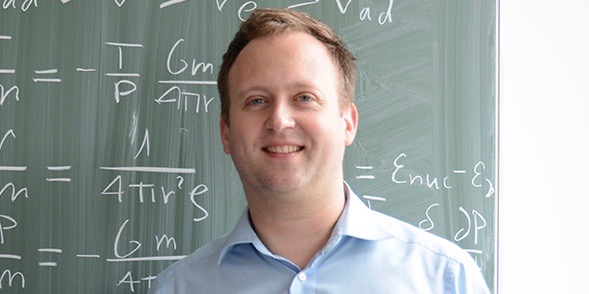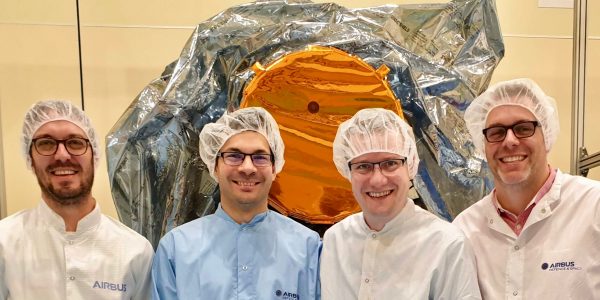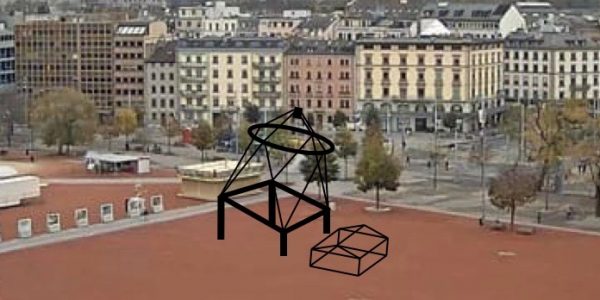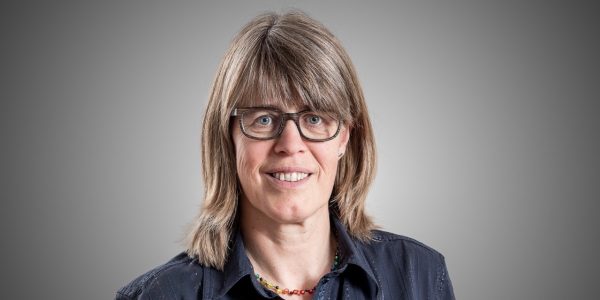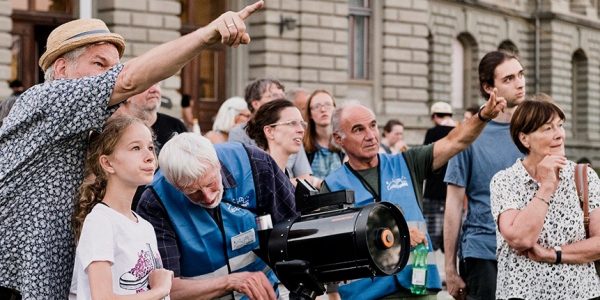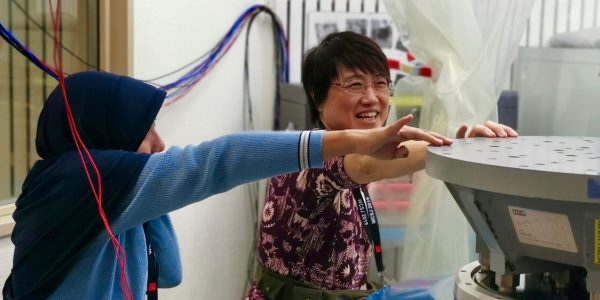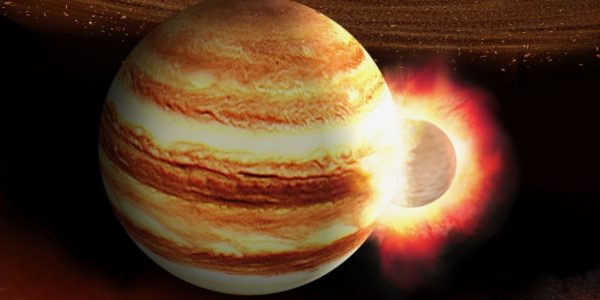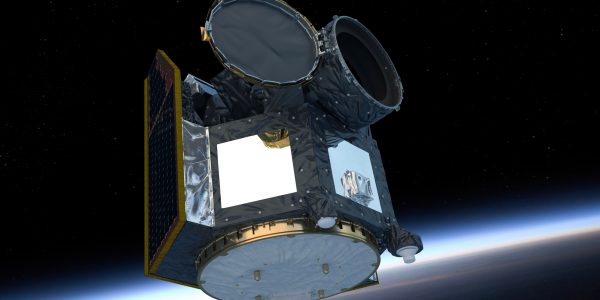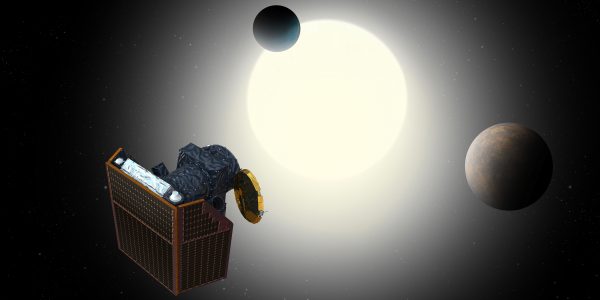Author Archive
Observing planets as they form
By Christoph Mordasini Astrophysics – the branch of physics that aims at explaining astronomical observations – differs from most other branches of physics by the comparatively minor availability or sometimes even absence of laboratory experiments. While crucial laboratory experiments do exist for several physical systems and processes that are relevant in astrophysics and in particular […]
Continue Reading“Now CHEOPS is ready for transport to Kourou”
The space telescope CHEOPS is foreseen to launch in the last quarter of 2019. “In July, we carried out the final tests on the instrument at Airbus in Madrid,” says project manager Christopher Broeg: “Now CHEOPS is ready for transport to Kourou.” PlanetS: The work on the CHEOPS space telescope was actually completed months ago […]
Continue ReadingMore than 1800 planetologists expected in Geneva
While the EPSC (European Planetary Science Congress) and the meeting of the Division of Planetary Science (DPS, USA) are planetology congresses that take place every year on their respective continents, the conference that brings together the two entities, the EPSC-DPS joint meeting, takes place every four years alternately in the USA and Europe. This year, […]
Continue Reading“My work is completely different now”
For 15 years Annette Jäckel has been working for the comet mission Rosetta. Now, as a grants advisor at the University of Bern, she supports researchers in physics, astronomy and geology in raising competitive third-party funds. “I enjoy providing this service, I’ve always been customer-oriented,” she says. Annette Jäckel knows the career concerns of young […]
Continue ReadingConflict- and Leadership Management
Workshop for Project Leaders at PlanetS When scientists make the transition to leadership or managerial positions, competences are required that are usually not part of their specialised training. The Academic Platform has therefore organised a 2-day workshop on conflict- and leadership management. It took place in Bern in December 2018 and June 2019. By Nadine […]
Continue ReadingA look back at Bern im All
“Bern im All” (Bern in Space) was a science festival during the last week of June. It was dedicated to everyone and was greatly appreciated by the general public and the scientific community around the University of Bern. Events took place at the University of Bern and the Grosse Schanze, the Kursaal, the Bundesplatz, and […]
Continue ReadingJournalists from all over the world
During the first week of July 2019, science journalists from around the world gathered in Lausanne for a conference. On their last day, field trips took them to different places in Switzerland including the Geneva Observatory, Gornergrat and the University of Bern. “I never thought that a small institute like the one in Geneva would […]
Continue ReadingGiant impact disrupted Jupiter’s core
New interior models of Jupiter based on data gathered by NASA’s Juno mission suggested that the giant gas planet might not have a small compact core but rather a diluted, “fuzzy” one. Now, an international team with researchers of the University of Zürich and the NCCR PlanetS has found an explanation for this surprising Juno […]
Continue ReadingCHEOPS passes final review
The Characterising Exoplanet Satellite, CHEOPS, has successfully passed the final analysis review for its launch on a Soyuz rocket from Europe’s Spaceport in Kourou, French Guiana. As ESA announced today, all technical evaluations performed by Arianespace on the mission’s key aspects, including the launch trajectory and payload separation, have shown positive results. Arianespace’s launch manifest […]
Continue ReadingObserving plans for CHEOPS
Observing stars that are known to harbour planets with unprecedented accuracy to characterise their planetary population – this is the main goal of the CHEOPS mission, scheduled for launch between 15 October and 14 November 2019. How the mission is going to achieve this is summarized in an article published by ESA on its CHEOPS […]
Continue Reading
